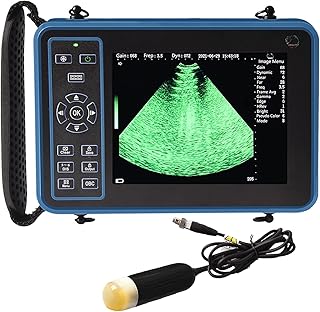In the realm of nephrology, the assessment of venous congestion through Doppler ultrasound plays a crucial role in understanding and managing acute cardiorenal syndrome. This condition presents diagnostic and therapeutic complexities, especially in cases of acute decompensated heart failure (ADHF). Traditionally, renal dysfunction in ADHF was attributed to reduced cardiac output. However, the recognition of various phenotypes of cardiorenal syndrome has shed light on the significance of venous congestion as a key hemodynamic driver of kidney failure.
The Venous Excess Ultrasound (VExUS) grading system, based on venous Doppler assessments, has emerged as a promising tool for predicting acute kidney injury (AKI) and cardiovascular outcomes. Studies have shown that alterations in venous Doppler markers can predict cardiovascular mortality and renal dysfunction in patients with heart failure or pulmonary hypertension. The assessment of venous congestion, particularly through the RVSI, has been linked to diuretic resistance and reduced diuretic efficiency in some patients with ADHF.
A recent prospective study investigated the relationship between VExUS grades, diuretic efficiency, and renal function improvement in patients with ADHF and AKI. The study cohort comprised patients with varying VExUS grades at admission, with higher grades correlating significantly with lower diuretic efficiency. Patients with higher VExUS grades exhibited reduced diuretic responsiveness compared to those with lower grades. The RVSI was identified as a key predictor of low diuretic efficiency, emphasizing the importance of venous congestion assessment in guiding diuretic therapy.
Furthermore, the study revealed that improvement in VExUS grade at 72 hours was associated with significant renal function improvement. Patients who demonstrated a reduction in VExUS grade also exhibited better diuretic efficiency, weight loss, and reductions in central venous pressure and NT-proBNP levels. These findings underscore the clinical relevance of assessing venous congestion in managing cardiorenal syndrome, particularly in optimizing diuretic therapy to achieve decongestion and improve renal outcomes.
The study’s insights highlight the need for individualized treatment strategies that consider the severity of venous congestion in patients with cardio-renal issues. By identifying markers of diuretic resistance early on, clinicians can tailor treatment approaches to enhance decongestion and optimize patient outcomes. The integration of venous Doppler assessments, such as the VExUS grading system, into routine clinical care presents an opportunity to refine treatment strategies and improve patient care. As research in this field continues to evolve, there is potential for further advancements in precision medicine and personalized management of cardiorenal conditions.
📰 Related Articles
- Young Key Forwards Shine Amid AFL Round 14 Challenges
- Why The Bridge Inn’s Garden Shed Holds Key to Community Heritage
- Why Shanghai Stock Exchange is Key to China’s Global Financial Ambitions
- VP Kamala Harris Energizes Nevada Democrats with Key Policy Focus
- Upskilling ‘Rising Talent’ Key to Small Business Workforce Success






